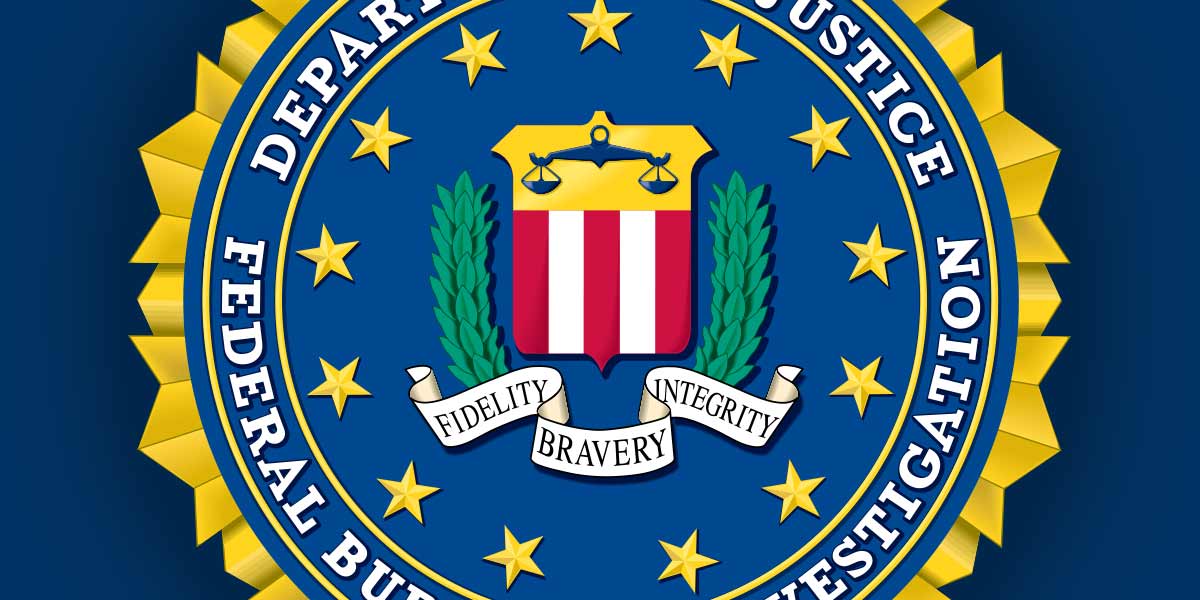President Donald Trump’s pick to lead the FBI, Christopher Wray, will begin his confirmation process next week, giving lawmakers an opportunity to press him on his previous statements about expansive surveillance authorities and aggressive copyright prosecution.
Defense of the USA PATRIOT Act
During his tenure as Assistant Attorney General in the Bush Administration, Wray vocally defended a range of controversial provisions in the USA PATRIOT Act—including Section 215, which would later provide the basis for the bulk collection of Americans’ telephone metadata.
When Wray went before the Senate Judiciary Committee in 2003 to defend the PATRIOT Act, a Department of Justice document indicated that Section 215’s business records provision had never been used. Wray insisted that was a sign of restraint: “We try to use these provisions sparingly, only in those instances where we feel that this is the only tool that we can use.” In fact, as the Privacy and Civil Liberties Oversight Board (PCLOB) made clear in its report on the bulk metadata program, Section 215 was sitting fallow because the Bush Administration was already collecting much of that data—without statutory authorization.
Granted, Wray didn’t have all of the information about that secretive wiretapping program until 2004, which we’ll get into below. Still, his insistence that Section 215 was just an effort to bring counterterrorism powers in line with ordinary criminal authorities reflected a concerning lack of skepticism about the risk of abuse. The same holds for his defense of a range of other PATRIOT Act provisions: “sneak and peek” warrants that allow law enforcement to search first and serve notice later; a reduced bar for obtaining a FISA warrant that one district court later found inconsistent with the Fourth Amendment; and a vaguely worded expansion of the kind of Internet data, some of it potentially very sensitive, that can be collected with a pen/trap order.
Experience teaches that broad grants of surveillance authority are invariably abused, as the PATRIOT Act has been. During Wray’s confirmation process, lawmakers should press him on his insistence that the Act “helped preserve and protect liberty and freedom, not erode them.”
Outstanding Questions about STELLARWIND
President Bush’s sweeping constellation of warrantless surveillance programs, codenamed STELLARWIND, played a key role in the mythos that surrounded the last two FBI Directors. Wray was reputedly one of the senior Justice Department officials ready to resign if then-Deputy Attorney General James Comey chose to do so over STELLARWIND’s legality—though Wray himself wasn’t aware of its existence at the time. Wray has since praised then-FBI Director Bob Mueller’s willingness to challenge President Bush over those surveillance programs, telling WIRED, “I think that the great thing about [people with] strong moral compasses is that they don’t have to hand-wring. When they’re uncomfortable, they know what they have to do.”
But when Wray was confronted with a constitutional concern about those intelligence efforts, his response, as reflected in a 2009 inspector general report, seems to have been underwhelming. Wray was read into STELLARWIND in 2004 to address concerns that the government—in working to preserve the spying program’s secrecy—was failing to disclose potentially exculpatory material to which criminal defendants were entitled under the Constitution. As the Justice Department’s Inspector General later found, “[T]he Department made little effort to understand and comply with its discovery obligations with Stellar Wind-derived information for the first several years of the program.” What legal analysis had been conducted was, the IG would later write, “factually flawed and inadequate.”
Wray and another attorney in the Justice Department’s Criminal Division were tasked with reviewing it. But beyond ordering the other attorney to write a memo of his own, it’s not clear Wray took any action to remedy the problem. While the memo recommended further research, there seems to have been no follow up. Four years after Wray left the Justice Department, its Inspector General would write that efforts to comply with the Constitution and other legal responsibilities “are not complete and do not fully ensure that the government has met its discovery obligations.”
Before he’s given the top job at the country’s law enforcement agency, Wray should have to square his praise for officials willing to challenge unconstitutional surveillance with his apparent inaction on a constitutional question about the rights of defendants swept up in spying programs.
Aggressive Copyright Prosecutions
As Assistant Attorney General for the Criminal Division, Wray also oversaw and touted the Justice Department’s aggressive prosecutions for intellectual property infringement, some of them alarmingly trivial. In 2004, for instance, Wray named a guilty plea from a defendant who shared a pre-release copy of “The Hulk” in a chat room as one of the most significant intellectual property prosecutions of the year. That emphasis seems disproportionate, to say the least. As Senator Leahy put it in the same Judiciary Committee hearing, “That movie sank like a rock at the box office. Within a couple of weeks, they probably could not have given away the copies.” Still, the impact on the defendant was very real—including six months’ home confinement.
In a climate in which copyright law is increasingly abused to chill and deter speech online, Wray’s past comments are cause for concern. Lawmakers should press him to commit to reasonable enforcement and respect for free expression protections.
An Obligation to Explain—and Reconsider
If confirmed, Christopher Wray will lead an agency with vast power to intrude on fundamental digital liberties. During his last tour in government service, he expressed views that should concern everyday Internet users. During this upcoming confirmation process, we expect lawmakers to review Wray’s record, and we hope he will disavow some of his more dangerous views on the government surveillance activities that we know to violate our core civil liberties.
